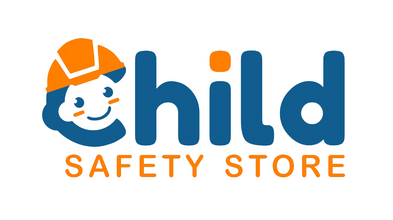
Rock Me Gently: Shaken Baby Syndrome
If there is one thing all new parents learn, it is that parenting is hard work. In many cases, it is much harder than they expected. Today, we’re talking about a rather dark, but ever-important, topic. In the interest of child safety, let’s discuss shaken baby syndrome.
What is Shaken Baby Syndrome?
According to sources, including the Mayo Clinic, Shaken Baby Syndrome is a severe brain injury. Most often, it occurs when an infant or toddler is forcefully shaken. Other names for this type of injury include abusive head trauma, inflicted head injury, shaken impact syndrome, or whiplash shaken infant syndrome.
The destruction of brain cells and lack of oxygen supply to the brain are hallmarks of Shaken Baby Syndrome, which can cause permanent brain damage or even death. It is a truly tragic occurrence. Thankfully, this type of child abuse is entirely preventable, and resources are available to parents who may be at risk of harming their child. It is important to note, Shaken Baby Syndome may not always happen on purpose.
In today’s post, we’ll discuss the symptoms and then some ways to properly hold a child Additionally, it's crucial for parents to educate other caregivers about the dangers of Shaken Baby Syndrome to ensure their child's safety.
Symptoms and Causes of Shaken Baby Syndrome
Infants have underdeveloped neck muscles that are unable to support the weight of their heads. Forceful shaking can jolt the head and cause a baby's fragile brain to move back and forth inside the skull, leading to bruising, swelling, and bleeding.
Shaken Baby Syndrome usually occurs when a parent or caregiver shakes a baby or toddler vigorously due to frustration or anger, often in response to the child's crying. However, it's crucial to understand that Shaken Baby Syndrome is not caused by bouncing a child on your knee or minor falls.
It's essential for parents, caregivers, and anyone who interacts with infants to be aware of the dangers of forcefully shaking a baby. While, statistically, men are more likely to shake an infant than women, it is a good idea for anyone to seek help and support if they feel overwhelmed or frustrated. Recognizing the warning signs and seeking appropriate assistance can help to prevent Shaken Baby Syndrome and ensure the safety and wellbeing of your children.
Shaken Baby Syndrome can present with a variety of symptoms and signs, including:
- extreme fussiness or irritability,
- difficulty staying awake,
- breathing problems,
- sudden and prolonged poor eating habits,
- vomiting,
- pale or bluish skin,
- seizures, paralysis and, in extreme cases, coma.
Physical injuries to the child's outer body may not always be apparent. When it comes to Shaken Baby Syndrome, injuries can take the form of bleeding in the brain and eyes, spinal cord damage, and fractures of the ribs, skull, legs, and other bones.
Seek Medical Help Immediately
In mild cases, a child may initially appear normal after being shaken, but over time they may develop health or behavioral problems. For this reason, it's essential to seek immediate medical attention if you suspect that a child has been shaken or has any of the symptoms listed above that are associated with Shaken Baby Syndrome.
Just as we’ve written about children who bump their heads, this medical issue should be taken very seriously.
Preventing Shaken Baby Syndrome
Preventing Shaken Baby Syndrome is crucial and requires awareness, education, and support. Parents can attend new parent education classes to learn about the dangers of violent shaking and get tips for soothing a crying baby and managing stress.
It's vital to always treat babies gently, even when they're upset and can't be calmed. Shaking a child under any circumstances is never acceptable. If parents are having a difficult time managing their emotions or stress levels, they should seek help from a mental health provider.
Pediatricians can provide referrals to counselors or other professionals who specialize in treating parental stress. Parents whose children have other caregivers, including nannies, siblings, or grandparents, should educate them about the dangers of shaken baby syndrome. Raising awareness and providing education can help prevent this tragic syndrome and ensure the safety and wellbeing of infants.
